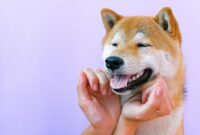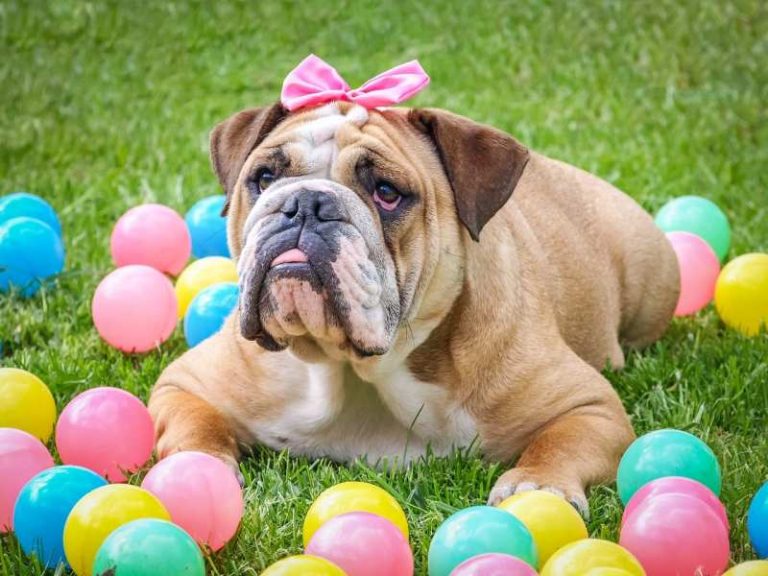Dog Socialization Care Guide – As you watch your dog settle into his new home, it can be hard to hide your excitement. As a pet owner, you want to introduce them to all the cool things in your world. Socialization is just that – helping your dog learn and love the world around him so that he becomes calmer, friendlier and more confident. It’s time to start your new adventure with these simple tips.
Introduce your dog to new sights and experiences. Your home and neighborhood is a whole new world for your dog – there are new people to meet, places to explore and things to discover. Before sharing your puppy with other dogs, make sure they have received the full series of puppy vaccinations. All pet owners should consult their veterinarian regarding the proper vaccinations for their dog. These new sights and experiences can be overwhelming, so give them some time to adjust and then slowly introduce your dog to the following: People of all genders, ages and ethnicities People with grooming like hats and scarves Strollers Bicycles, scooters, drones , and skateboards/hoverboards Wheelchairs and walkers Mops, brooms and umbrellas Forests and beaches Different types of floors and ground surfaces (carpet, stairs, concrete)
Dog Socialization Care Guide

Get used to familiar sounds Your dog will likely have new (and loud) sounds to get used to. Pay special attention to sounds that cause them to bark, hide, or become anxious. If you notice these behaviors when your dog first hears the sound, this may be normal – your dog should be aware that these sounds are not scary. However, if your dog continues to exhibit this behavior every time he hears the sound, you should talk to your vet to make sure your dog doesn’t have noise. Some common sounds you can use include: A knock or doorbell Loud appliances such as hair dryers, blenders, vacuum cleaners and washing machines Alarm clocks Garbage and delivery trucks, buses and motorcycles Car horns and sirens Nightmarish family members and the sounds of fireworks
The Bullmastiff: A Complete Guide To History, Care, And Training
Meet Other Pets This step is essential in socializing your dog, but it should be done slowly. Over time, introduce your dog to all the other pets in your home, the dogs of your neighbors, family members and friends, and to puppy training classes or groups. Puppy classes are a great way to get your puppy used to new people and other dogs, and to learn good manners. Check to see if there are puppy classes in your area. Practice makes perfect! The more steps you take to socialize your dog, the better the experience will be for both of you. Avoid “flooding” Pet flooding is when you overload a pet by exposing it to a situation that causes extreme fear or anxiety. Flooding can lead to serious medical and/or behavioral conditions. Socialization should always be a gentle, progressive step-by-step process.
Dr. Claire Walter was born and raised in Dayton, Ohio. She received her bachelor’s degree and graduate doctorate from Purdue University in West Lafayette, Indiana. While at Purdue University, she graduated with honors for her research. During her veterinary education, she worked as a clinical pathology technician and developed a deep understanding of clinical laboratory testing. She worked out of Indianapolis in a corporate (Banfield) and freelance practice before joining Zoetis in 2016. Dr. Walter is currently the Director of Feline Pain Strategy HQ Zoetis Petcare HQ.
The Walther family consists of 3 dogs (Sundae, Eva and Vanilla Bean) and two cats (Gambit and Linkin). It is the love she shares for her family, both human and animal, that fuels her campaign to increase our ability to detect, prevent and treat disease in veterinary medicine. modified dog with our comprehensive socialization checklist. Learn practical tips from Head Office today!
Puppy socialization is a vital part of raising a well-adjusted and well-behaved dog. It’s a process that helps your little puppy become comfortable with different people, animals, environments and experiences, setting him up to navigate the world as he grows in confidence.
Puppy Socialisation Checklist & Guide
The most critical period of socialization occurs before 12 weeks of age, making it essential that new pet owners have a checklist to ensure they cover all the essential aspects during this time.
Understanding the importance of socialization is one of the first steps in building a solid foundation for a happy and healthy dog. Exposing your puppy to different environments, people, sounds and experiences can help him become more flexible and well-rounded.
Creating positive experiences is key to developing trust and confidence, helping to prevent behavioral problems. With the right socialization checklist and guide, you can play an active role in your puppy’s development, ensuring that he grows up to be a well-behaved and well-adjusted companion.

Note: The checklist above is a general guide. The list may require adjustments depending on the breed, the individual dog breed and the owner’s situation. Always prioritize your puppy’s safety and comfort.
The Complete Pomeranian Puppy Care Guide
If you want to raise a happy and well-behaved dog, proper puppy socialization is one of the most important factors. I learned that this process involves exposing puppies to different people, places, sights and sounds at an early age, which helps them develop confidence and positive connections with the world around them.
The American Veterinary Medical Association emphasizes the importance of socialization during the “socialization window.” This is vital to the well-being of our furry friends. This critical puppy socialization window begins at three weeks of age and usually continues until the puppy is 14-16 weeks old. During this time, it is important to introduce them to different experiences, as this is the basis for their behavior throughout life.
Enrollment in well-structured puppy classes that provide a controlled socialization environment is also recommended. This way, your puppy can learn to interact with other puppies and people under the guidance of a professional trainer.
It is essential that you understand and follow these puppy socialization guidelines to help them grow into confident, well-adjusted dogs who are comfortable in their environment and with those they meet.
Kooikerhondje Care Guide: Tips For A Happy, Healthy Dog
When raising a well-adjusted and happy dog, I cannot stress enough the importance of socialization. As a dog owner, I need to make sure my puppy learns how to interact appropriately with the environment, other animals and people.
One of the main benefits of proper socialization is the prevention of behavioral problems. When puppies are not exposed to different situations, they can develop aggression, anxiety, fear and stress as they age. Making sure my puppy experiences varied and positive experiences helps build a strong foundation for their emotional well-being.
It is vital that socialization begins early in a puppy’s life. During the critical period of 5 to 16 weeks, my puppy’s experiences shape their future behavior. Positive and negative encounters at this point can have a lasting effect.

Starting socialization at this stage will help raise an emotionally resilient dog that can handle different environments and situations with confidence.
Empowering Paws: The Power Of Cooperative Care
A well-socialized dog is less prone to aggression or biting problems. These behaviors often stem from fear and anxiety, so exposing my pup to a variety of experiences while maintaining a calm and supportive atmosphere allows them to feel comfortable in different environments.
It also means my dog will be friendlier, which will make it easier for him to build positive relationships with other animals and people.
A confident dog can navigate new situations with ease, reducing the likelihood of stress and ensuring a happier life for me and my pet.
My approach to training prevents behavioral problems such as aggression and biting and reduces anxiety and fear while promoting confidence and sociability.
The Puppy Timeline: A Socialization Guide
Taking the time to adequately socialize my puppy will result in a happy, well-adjusted dog that will make our lives more enjoyable.
When it comes to puppy socialization, having a thorough and comprehensive checklist is essential. Using this checklist will help ensure that your puppy grows up to be a well-adjusted social dog, while reducing the likelihood of future behavior problems.
I recommend that the puppy socialization checklist covers a variety of experiences, including different environments, people, animals, and sounds. The goal is to expose your puppy to as many new and varied experiences as possible during his critical period of development.

First, I would like to emphasize the importance of exposing your puppy to different environments. This can include various surfaces such as sand, grates, cement, wooden floors, carpets and stairs. Make sure your puppy has the opportunity to explore different places, such as friends’ homes, pet stores, hardware stores, and vet visits.
Mueller’s Essential Guide To Puppy Development (mueller’s Official): Scott Mueller: 9780615383606: Amazon.com: Books
When dealing with people, the more diverse the better. Make sure your puppy meets people of different ages, heights and looks. This will help them develop a neutral attitude and accept everyone.
Your puppy needs to socialize with other animals, not just other dogs. Introduce them to cats, birds and even livestock if possible. This exposure to different animals will help them develop appropriate social behaviors and build their confidence around different stimuli.
Finally, exposing your puppy to a variety of sounds is essential for his healthy development. Some common sounds for your social checklist are clapping, shouting, laughter, thunder, doorbells, stomping, and street noise. The more your puppy is used to these sounds, the less likely he will be alarmed by the noise.
By creating and following a comprehensive puppy socialization checklist, I am
Dog Socialization 101
Free dog socialization classes, dog socialization class, dog socialization sounds, dog socialization, dog socialization training, dog socialization classes, dog daycare socialization, adult dog socialization classes, dog socialization near me, aggressive dog socialization classes, dog training socialization classes, small dog socialization classes
- Dog Socialization Care Guide - August 11, 2024
- Best Dog-friendly Vacations - August 11, 2024
- Wildlife Conservation Organizations - August 10, 2024







